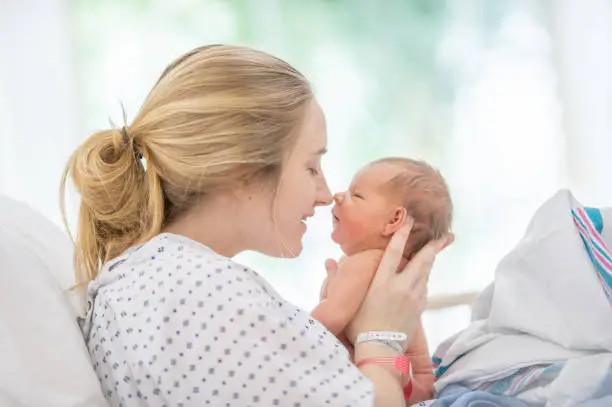After giving birth, your body goes through many changes, and your vagina needs time to heal. Whether you had a vaginal delivery or a C-section, postpartum vaginal care is essential for preventing infections, reducing discomfort, and promoting faster recovery. Proper hygiene, rest, and self-care can help you feel more comfortable and support healing. Here’s how to take care of your vagina after giving birth.
- Keep the Area Clean
Maintaining good hygiene is crucial to prevent infections and promote healing.
- Wash your vaginal area with warm water and mild, fragrance-free soap.
- After using the toilet, wipe from front to back to avoid infections.
- Use a peri bottle (a squeeze bottle with warm water) to rinse the area instead of wiping with toilet paper, which can be irritating.
- Manage Postpartum Bleeding (Lochia)
After childbirth, your body expels blood and tissue (lochia) for several weeks.
- Use maternity pads instead of tampons or menstrual cups to allow proper healing.
- Change your pad every 2 to 4 hours to prevent infections.
- If you notice foul-smelling discharge, heavy bleeding, or large clots, consult a doctor.
- Soothe Pain and Swelling
Your vagina may feel sore or swollen after delivery, especially if you had a tear or stitches.
- Apply a cold pack wrapped in a soft cloth to the area for 10-15 minutes to reduce swelling.
- Use witch hazel pads or a sitz bath (sitting in warm water) to ease discomfort and promote healing.
- If needed, take doctor-approved pain relievers like ibuprofen.
- Be Gentle with Stitches and Tears
If you had perineal tears or an episiotomy, proper care is essential to avoid complications.
- Keep the area clean and dry by gently patting it with a clean towel after washing.
- Avoid sitting for long periods to reduce pressure on stitches.
- Avoid straining during bowel movements—eat fiber-rich foods and drink plenty of water.
- Avoid Intercourse Until You’re Healed
Your doctor will likely recommend waiting 4 to 6 weeks before having sex.
- Give your body time to heal, especially if you had stitches, tearing, or excessive bleeding.
- When you resume intercourse, use lubrication to prevent discomfort, as postpartum hormones can cause vaginal dryness.
- Prevent Infections
The postpartum period makes you more vulnerable to infections, so take extra precautions.
- Wear breathable cotton underwear and change it regularly.
- Avoid douching or inserting anything into the vagina (tampons, menstrual cups, or fingers) until your doctor approves.
- Look for signs of infection like bad odor, increased pain, or fever, and seek medical attention if needed.
- Strengthen Pelvic Floor Muscles
Your pelvic floor muscles may weaken after childbirth, leading to urine leakage or reduced vaginal tightness.
- Start with Kegel exercises (tightening and releasing your pelvic muscles) to restore strength.
- Avoid heavy lifting or intense exercise until your doctor gives you clearance.
- Stay Hydrated and Eat Nutritious Foods
A healthy diet supports healing and prevents constipation.
- Drink plenty of water to stay hydrated.
- Eat fiber-rich foods like fruits, vegetables, and whole grains to prevent constipation.
- Include protein and iron-rich foods to promote tissue repair and energy levels.
- Get Enough Rest
Your body needs rest to recover from childbirth.
- Take naps whenever possible, especially when the baby sleeps.
- Avoid standing or walking for long periods if you feel discomfort.
- Ask for help from family or friends to reduce stress and allow time for healing.
- Consult Your Doctor for Concerns
Postpartum check-ups are essential for monitoring your recovery.
- Attend your 6-week postpartum appointment or follow your doctor’s recommendations.
- If you experience severe pain, excessive bleeding, bad-smelling discharge, or fever, seek medical attention immediately.
Also Read: How To Style Long Braids
Email your news TIPS to Editor@Kahawatungu.com — this is our only official communication channel


